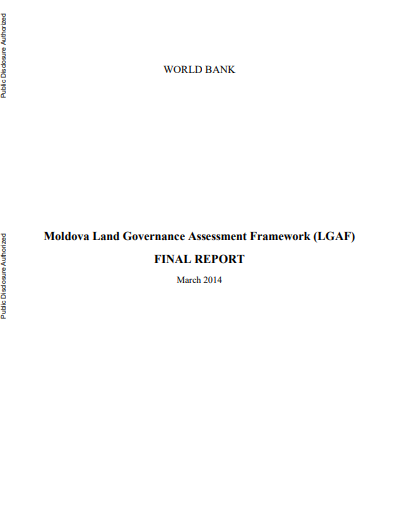The World Bank is a vital source of financial and technical assistance to developing countries around the world. We are not a bank in the ordinary sense but a unique partnership to reduce poverty and support development. The World Bank Group has two ambitious goals: End extreme poverty within a generation and boost shared prosperity.
- To end extreme poverty, the Bank's goal is to decrease the percentage of people living on less than $1.25 a day to no more than 3% by 2030.
- To promote shared prosperity, the goal is to promote income growth of the bottom 40% of the population in each country.
The World Bank Group comprises five institutions managed by their member countries.
The World Bank Group and Land: Working to protect the rights of existing land users and to help secure benefits for smallholder farmers
The World Bank (IBRD and IDA) interacts primarily with governments to increase agricultural productivity, strengthen land tenure policies and improve land governance. More than 90% of the World Bank’s agriculture portfolio focuses on the productivity and access to markets by small holder farmers. Ten percent of our projects focus on the governance of land tenure.
Similarly, investments by the International Finance Corporation (IFC), the World Bank Group’s private sector arm, including those in larger scale enterprises, overwhelmingly support smallholder farmers through improved access to finance, inputs and markets, and as direct suppliers. IFC invests in environmentally and socially sustainable private enterprises in all parts of the value chain (inputs such as irrigation and fertilizers, primary production, processing, transport and storage, traders, and risk management facilities including weather/crop insurance, warehouse financing, etc
For more information, visit the World Bank Group and land and food security (https://www.worldbank.org/en/topic/agriculture/brief/land-and-food-security1
Resources
Displaying 1916 - 1920 of 4907Living without Sanitary Sewers in Latin America : The Business of Collecting Fecal Sludge in Four Latin American Cities
The present report spotlights the major
challenges and the opportunities that lie ahead in fecal
sludge management and summarizes the findings from four case
studies that describe the current and potential market for
sludge removal, collection, and disposal in peri-urban
areas. These areas, inhabited by a variety of ethnic,
religious, and cultural groups, typically struggle with high
population density, insufficient land use planning, high
Central-Local Government Relations in Thailand : Improving Service Delivery
Addressing regional disparities in
access to public services is an emerging development
challenge for Thailand. A well-functioning system of
Central-Local Government Relations and proactive expenditure
policy can help achieve this goal. Providing responsive and
accountable public services are necessary for maintaining
trust of the citizens in government and fostering cohesion
within a unitary state like Thailand. Without a reversal of
Paving the Way for a Transformational Future : Lessons from Jawaharlal Nehru National Solar Mission Phase I
Renewable energy, especially solar
power, has been garnering a lot of interest from
governments, international development organizations, civil
society, and the private sector for the last few years.
There has been a huge surge in the popularity of this
important energy source from various stakeholders in India
as well. On the other hand, solar power presents a
formidable option for addressing pertinent issues being
Kenya Groundwater Governance Case Study
This report presents a case study on
groundwater governance in Kenya. The objectives of the study
were to: (a) describe groundwater resource and socioeconomic
settings for four selected aquifers; (b) describe governance
arrangements for groundwater management in Kenya; and (c)
identify the relevance of these arrangements for planning
and implementing climate change mitigation measures. The
report provides a comprehensive strategy to develop
Moldova - Land governance assessment framework (LGAF) : final report (English)
The Land Governance Assessment Framework (LGAF) is a diagnostic tool to assess the status of land governance at country level using a participatory process that draws systematically on existing evidence and local expertise rather than on outsiders.







